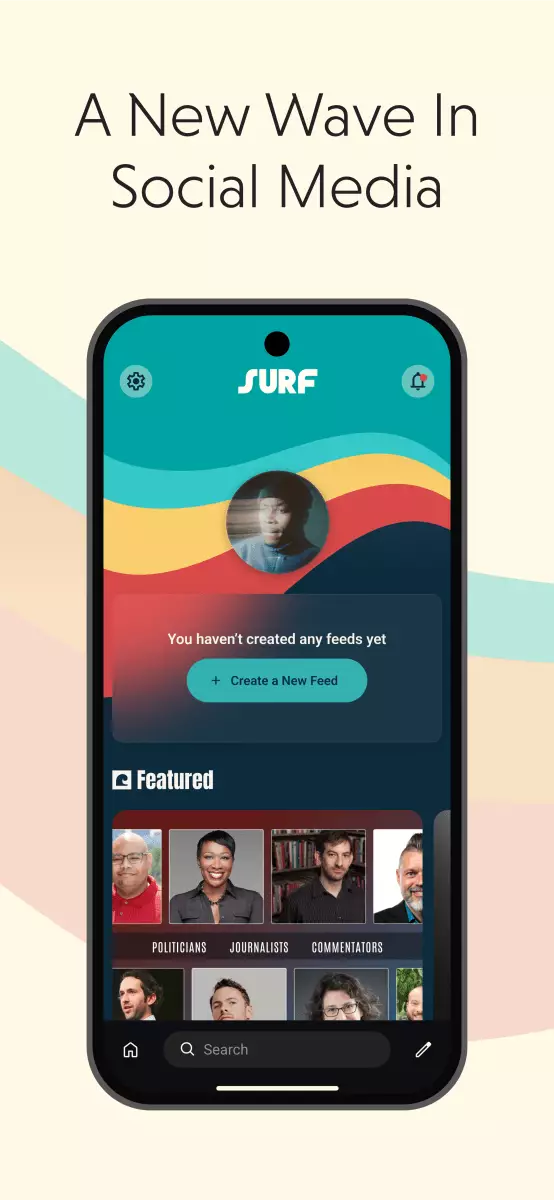With the recent ban of TikTok, social media platforms are experiencing a shift in how users consume content, particularly video. In response, the decentralized social network Bluesky has quickly adapted by launching a custom video feed designed to engage users and keep them on the platform. But the innovation doesn’t stop there; Flipboard’s new application, Surf, is leveraging this change by introducing its own video feed that promises to enhance users’ experience through tailored content. This strategic move demonstrates a growing trend among lesser-known social platforms to differentiate themselves within a crowded ecosystem dominated by larger players.
Surf’s initial video feed incorporates elements from Bluesky’s “trending video” section, as well as content tagged with #SkyTok, allowing it to tap into an existing user base while offering something new. Flipboard’s CEO, Mike McCue, noted that the ambition behind Surf is to evolve beyond conventional social media limitations. The platform aims to create personalized experiences driven by user preferences, thus venturing into territories traditionally ruled by major platforms. By employing user-generated content from the greater Bluesky network, Surf is setting the stage for a more inclusive and diverse video-sharing environment.
What differentiates Surf from Bluesky is its promise of personalization. The video feed’s future iterations will rely on users’ following timelines within Bluesky, filtered specifically for video content. With this enhancement, users will have direct access to videos created by those they already engage with, fostering a sense of community and enhancing their browsing experience. This personalized approach reflects a broader shift towards more curated content streams that resonate with individual tastes.
One of the standout features of Surf is its ability to connect different social networks, embodying the decentralized nature of the web. Unlike traditional platforms that often restrict access to specific content, Surf allows users to interact with multiple networks such as Mastodon, Threads, and even YouTube. This flexible architecture fosters a sense of interconnectedness, letting users engage with a wide array of content beyond the confines of a single app.
Moreover, the integration of various social feeds not only empowers users but also illustrates the adaptability of decentralized systems. With users increasingly interested in diverse content formats—from video discussions on literature to niche communities growing around specific interests—Surf provides a space where these interactions can flourish. McCue’s mention of creating specialized feeds like “BookTok” signifies the platform’s commitment to niche content, catering to communities that thrive on shared interests.
As Surf iterates on its video feed, it raises important questions regarding the balance between community-driven content and algorithm-driven suggestions. With traditional platforms often criticized for their opaque algorithms, the emergence of Surf and Bluesky’s custom feeds presents an opportunity to reshape user interactions. Instead of relying heavily on impersonal algorithms, these platforms are positioning themselves as tools that empower users to curate their individual experiences.
However, the ongoing challenge lies in avoiding the pitfalls of echo chambers, where users may only see content that aligns with their established preferences. As the platform grows, the need for mechanisms that promote diverse viewpoints and varied content becomes crucial to maintaining a dynamic community. The ability for users to explore outside their established feed through Surf’s federated model could be the key to fostering a vibrant, multi-dimensional social space.
The advent of Surf and its video feed in response to the TikTok ban exemplifies a larger movement within the social media landscape—one that champions user experience through customization and decentralization. By allowing users to create and curate content across a breadth of platforms, Surf symbolizes a new era in social networking. As the demand for unique user experiences continues to grow, apps like Surf and Bluesky are positioned to redefine how we interact with video content. The future looks promising, as innovation in social media focuses on community, personalization, and the power of shared interests.

